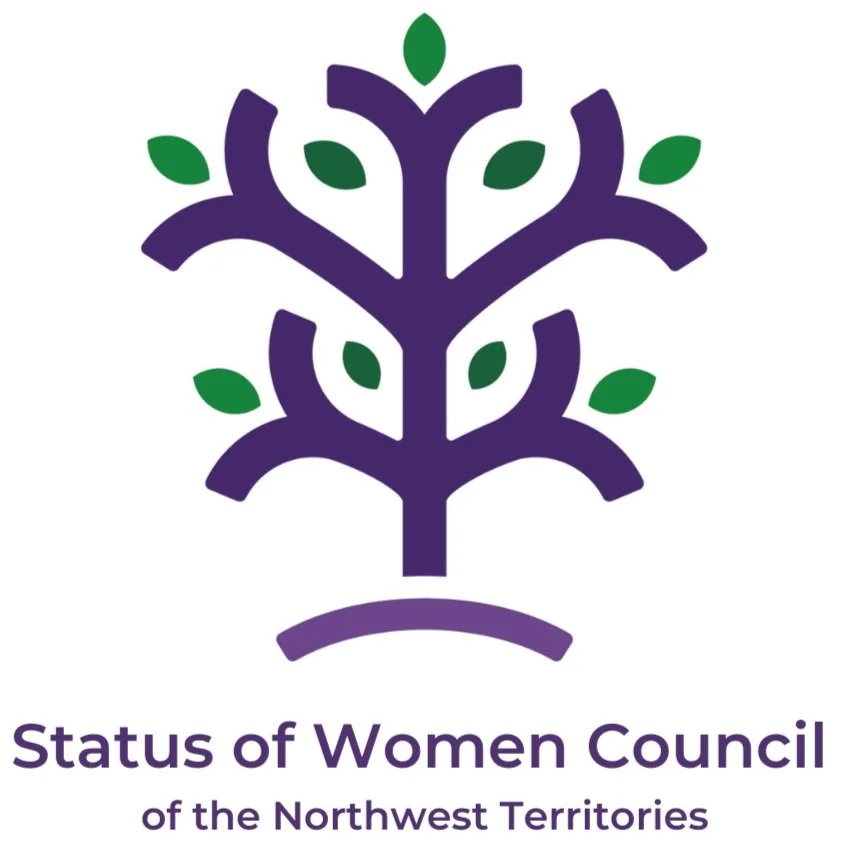The Status of Women Council of the Northwest Territories
The Leader of the Government of the Northwest Territories (‘GNWT’) appointed the first Minister Responsible for the Status of Women in 1982. The following year, the GNWT enacted the NWT Advisory Council on the Status of Women Act. The first Advisory Council on the Status of Women was appointed in 1984 and two years later, the name was changed to the Women’s Secretariat. In 1989, the GNWT announced its intent to establish an independent Status of Women Council that would be separate from the Women’s Secretariat. In 1990, the Status of Women Council of the Northwest Territories was created through the enactment of the Status of Women Council Act. The Status of Women Council of the NWT (‘SWCNWT’) continues to function under this Act and remains focused on advancing equality in the territory.
Our Mission
The Status of Women Council of the Northwest Territories strives to advance the equality of women and all genders through public awareness; community engagement and development; research; collaboration with organizations; review and report on government policies, legislation, programs, and services; advice to and collaboration with the Minister; and advocating for change.
Our Vision
The Status of Women Council of the Northwest Territories envisions a society that respects and embraces women’s diverse experiences, perspectives, skills, and knowledge in all spheres of society, and celebrates the equality and inclusion of all genders.
Values
The actions we take to achieve our mission and vision are guided by our values:
Equality and Equity: as it relates to social questions of fairness and justice, equality entails a principle of impartiality and sameness of treatment for all people—that is, of ensuring equal treatment to all people, without consideration of individual and group diversities. By comparison, equity entails a principle of ensuring fair, inclusive, and respectful treatment of all people, with consideration of individual and group diversities.
Diversity: including people from a range of social and ethnic backgrounds, genders, sexual orientations, and other identity factors.
Inclusion: providing equal access to opportunities and resources for all people
Integrity: acting consistently with our values while upholding the highest ethical standards of a public agency
Respect: treating all people with fairness, dignity, and an open mind
Compassion: demonstrating warmth, care, and concern for others while taking action to improve another person’s well-being
Professionalism: striving to uphold the role and image of the SWCNWT as a public agency mandated to advance equality
